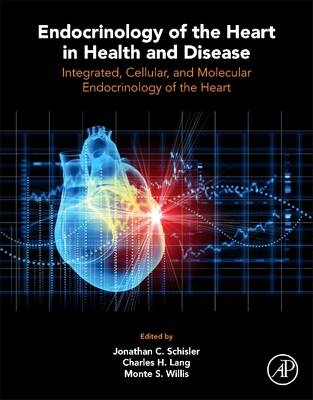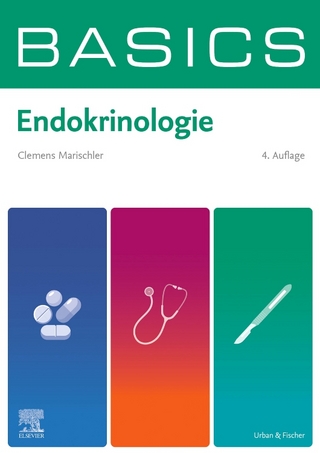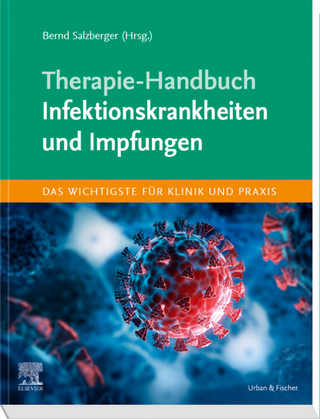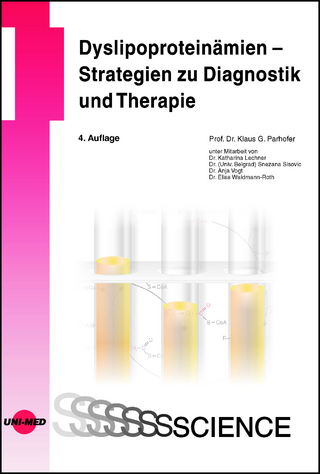
Endocrinology of the Heart in Health and Disease
Academic Press Inc (Verlag)
978-0-12-803111-7 (ISBN)
The book explores how cardiac hormones are changed in various cardiac pathologies and the recent success that has been uncovered in their therapeutic use. Additional focus is placed on how the heart responds both physiologically and pathophysiologically to a plethora of circulating hormones, reinforcing the importance of the heart as a target of numerous endocrine systems, such as the brain, renal, and adipose. Significant advances have come from basic, clinical, and translational research from a multiplicity of investigators with diverse backgrounds.
The book features over 200 photomicrographs, diagrams of molecular relationships, and tables that complement and support the text. It is aimed at a wide audience, including graduate students and post-doctoral fellows in a wide array of biomedical departments and PhD programs (e.g. Pathology, Physiology, Genetics, Pharmacology, Molecular Biology, and Cell Biology) related to the endocrine and cardiovascular sciences curricula, as well as medical residents in pathology, laboratory medicine, internal medicine, and cardiology.
Jonathan Schisler has experience in studying metabolism, gene expression signatures, and ubiquitin ligases over the past 14 years. His expertise lies in integration of complex genomic-biologic data to elucidate risk relationships in both murine and human systems with a focus on cardiovascular disease and protein quality control mechanisms. His primary focus is to develop models to integrate datasets derived from clinical genomics, transcriptomics, and metabolomics allowing our lab to further interrogate gene and protein function in health and disease using molecular, cellular and biochemical approaches. Charles H. Lang, PhD, is currently a Distinguished University Professor in the Department of Cellular and Molecular Physiology, and Professor of Surgery at the Penn State College of Medicine (Hershey, PA). He is also the Associate Dean for Graduate Studies. His research has focused on the mechanisms underlying changes in glucose and protein metabolism in skeletal and cardiac muscle, and the role of cytokines in the regulation of the insulin-like growth factor system in regulating muscle metabolism. He has worked extensively on the regulation of translational control of protein synthesis and the development of anabolic resistance during various catabolic states, including sepsis, thermal injury, disuse atrophy, alcoholism and HIV infection. Dr. Lang received his PhD from Hahnemann Medical College and did his NRSA-supported fellowship at LSU Medical Center in New Orleans. Before joining Penn State University, he was Director of Surgical Research at SUNY-Stony Brook. Dr. Lang has been continuously funded by the NIH for 30 years and is the current recipient of an NIH MERIT Award from NIAAA. He has been a permanent member of 2 NIH study sections: Surgery, Anesthesiology and Trauma, and Alcohol and Toxicology IV, and is currently the Chair of the AA-1 study section at NIH. Dr. Lang is currently the Editor-in-Chief of the American Journal of Physiology: Endocrinology and Metabolism and on the board for numerous other journals. He is a member of more than ten professional societies. He has served in leadership roles in national scientific organizations as exemplified by his term as President for the Shock Society. Dr. Lang has published more than 300 peer-reviewed articles related to altered muscle metabolism during sepsis, alcohol and catabolic illness, and trained more than 20 postdoctoral fellows, surgical residents and graduate students. Monte S. Willis, MD, PhD, MBA is Vice-Chair of Academic Affairs and Associate Professor in the Department of Pathology and Laboratory Medicine at the Univeristy of North Carolina-Chapel Hill. He is Director of Campus Health Services Laboratory and the McLendon Clinical Laboratories and principal investigator in the McAllister Heart Institute, where he leads a research team studying the role of the ubiquitin proteasome system in metabolism and the pathophysiology of cardiac disease (supported by NIH and the Fondation Leducq) and teaches in the School of Medicine and Graduate School. Dr. Willis received his combined MD and PhD training at the University of Nebraska Medical Center. He went on to complete a residency in the Department of Pathology and post-doctoral training in in Burns, Trauma, and Critical Care in the Department of Surgery at the University of Texas Southwestern Medical Center. He has received multiple honors for his research, including the Cotran Early Career Investigator Award from the American Society of Investigative Pathology, and the Jefferson-Pilot Fellowship in Academic Medicine from the University of North Carolina School of Medicine. He is active on the editorial boards of the American Journal of Pathology, Cardiovascular Pathology, Journal of Molecular and Cellular Cardiology, American Journal of Physiology-Endocrine and Metabolism and co-chairs an American Heart Association Study Section. Dr. Willis has published more than 210 manuscripts in clinical, translational, and the basic sciences and edited multiple medical textbooks, including Molecular and Translational Vascular Medicine (2012); Translational Cardiology: Molecular Basis of Cardiac Metabolism, Cardiac Remodeling, Translational Therapies, and Imaging Techniques (2012), and the Cellular and Molecular Pathobiology of Cardiovascular disease (2013).
Part I: The Heart as an Endocrine Organ
Chapter 1. Cardiac Natriuretic Peptides
Chapter 2. Adrenomedullin
Chapter 3. Endothelin-1 as a Cardiac-Derived Autocrine, Paracrine and Intracrine Factor in Heart Health and Disease
Chapter 4. The Cardiokines: An Expanding Family of the Heart Secretome
Chapter 5. Novel Small Peptide Hormones
Part II: The Heart as an Endocrine Target
Chapter 6. Gut-Derived Hormones—Cardiac Effects of Ghrelin and Glucagon-Like Peptide-1
Chapter 7. Fat Hormones, Adipokines
Chapter 8. Neuronal Hormones and the Sympathetic/Parasympathetic Regulation of the Heart
Chapter 9. Renin Angiotensin Aldosterone System and Heart Function
Chapter 10. Nuclear Receptors and the Adaptive Response of the Heart
Chapter 11. Adrenergic Receptors
Chapter 12. Insulin Signaling in Cardiac Health and Disease
| Erscheinungsdatum | 18.11.2016 |
|---|---|
| Verlagsort | San Diego |
| Sprache | englisch |
| Maße | 191 x 235 mm |
| Gewicht | 950 g |
| Themenwelt | Medizinische Fachgebiete ► Innere Medizin ► Endokrinologie |
| Medizinische Fachgebiete ► Innere Medizin ► Kardiologie / Angiologie | |
| ISBN-10 | 0-12-803111-5 / 0128031115 |
| ISBN-13 | 978-0-12-803111-7 / 9780128031117 |
| Zustand | Neuware |
| Informationen gemäß Produktsicherheitsverordnung (GPSR) | |
| Haben Sie eine Frage zum Produkt? |
aus dem Bereich


